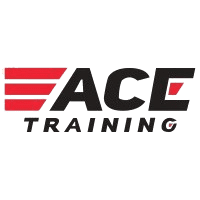
Popular courses in Sunbury
Diploma of Leadership and Management
- There are no mandated entry requirements.






Certificate IV in Leadership and Management
- There are no mandated entry requirements.




Diploma of Community Services
- There are no mandated entry requirements.


Diploma of Project Management
- There are no mandated entry requirements.





Diploma of Business
- There are no mandated entry requirements.




Diploma of Community Coordination and Facilitation
- There are no mandated entry requirements.
 RuralBiz Training
RuralBiz Training
Diploma of Conservation and Ecosystem Management
- There are no mandated entry requirements.







Certificate II in Conservation and Ecosystem Management
- There are no mandated entry requirements.


Certificate IV in Conservation and Ecosystem Management
- There are no mandated entry requirements.
 Central Regional TAFE
Central Regional TAFE
Confine Small Workplace Emergencies in a Facility
- There are no mandated entry requirements.
 Fire And Safety Australia
Fire And Safety Australia
Course in Workplace Spotting for Service Assets
- There are no mandated entry requirements.








Bachelor of Environmental Science
- There are no mandated entry requirements.
 RMIT University
RMIT University
Certificate III in Conservation and Ecosystem Management
- There are no mandated entry requirements.


Bachelor of Arts (Indigenous Studies)
- There are no mandated entry requirements.


Bachelor of Science (Agricultural Science)
- There are no mandated entry requirements.
 The University of Melbourne
The University of Melbourne
Bachelor of Science (Biological Sciences)
- There are no mandated entry requirements.


Bachelor of Science (Biology)
- There are no mandated entry requirements.
 Charles Sturt University
Charles Sturt University
Bachelor of Science (Botany)
- There are no mandated entry requirements.
 La Trobe University
La Trobe University
Bachelor of Science (Ecology)
- There are no mandated entry requirements.
 La Trobe University
La Trobe University
Bachelor of Science (Ecology and Conservation Biology)
- There are no mandated entry requirements.
 Monash University
Monash University
Frequently Asked Questions
Yes, there are course providers who offer 20 qualification(s) in Sunbury. Find a course provider near you. Once you make an enquiry, a course advisor will get in touch to discuss your study options and course fees.
Written by Courses.com.au Team
There are several campuses within the Sunbury area that provide conservation and land management training. The closest campus is 11km away from the center of Sunbury. You can also study a conservation and land management course through online, distance or traineeship learning. Find a course provider that best suits your needs.
Written by Courses.com.au Team
Potential job roles within conservation and land management includes regional coordinator, conservation manager or conservation trainee (to name a few). Browse related occupations to find a career that suits your needs.
Written by Courses.com.au Team
Further reading


Certificate III in Pathology Collection: Everything You Need to Know
10th February 2025)
